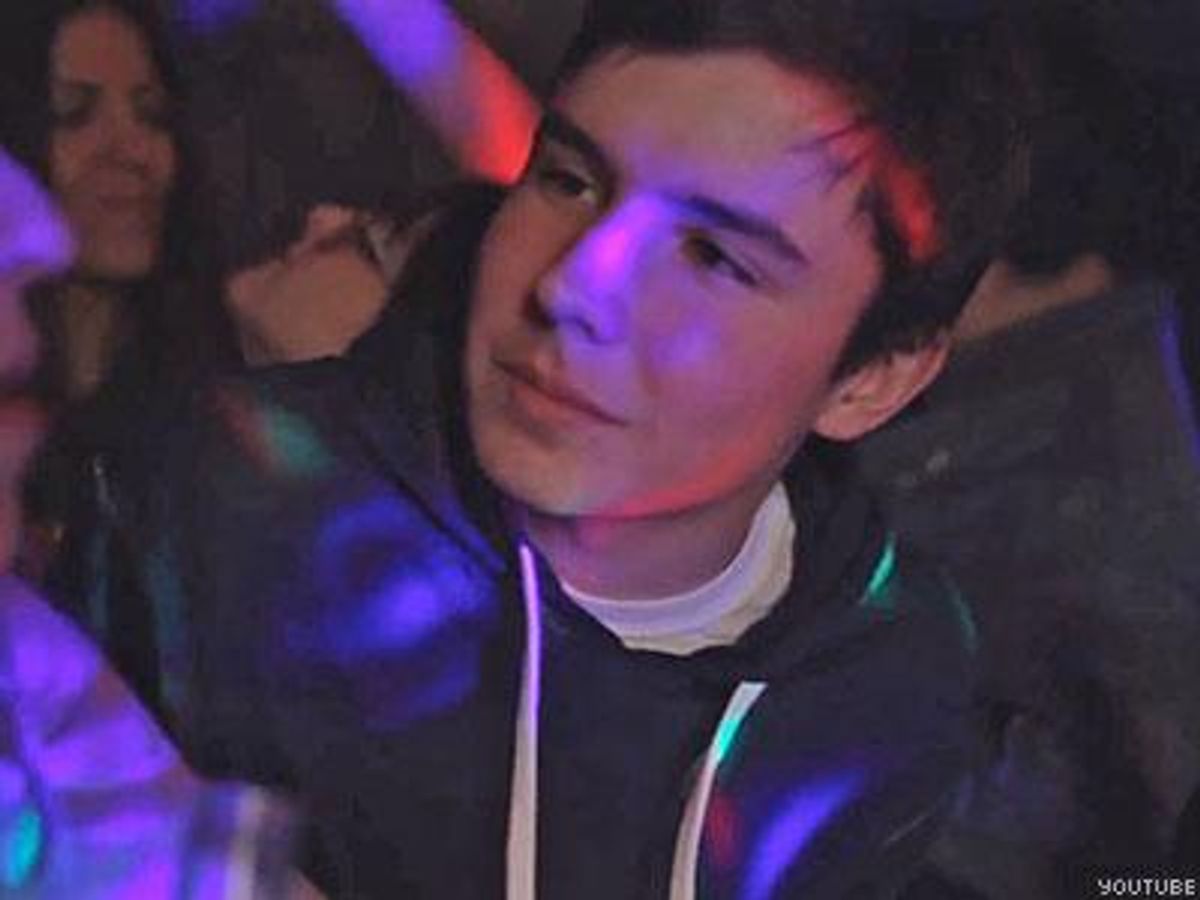Adam, the star of Ariel Schrag's new novel -- which is titled, appropriately enough, Adam -- is your quintessential unpopular, bored 17-year-old boy who craves the freedom and sexual experience he hasn't been able to find in his California suburb.
So, the summer before his senior year, he decides to spend a few months in New York. He hopes his lesbian sister Casey, fresh from her first year in college, will introduce him to a new world: namely, a world where a girl would have sex with him.
Of course, Casey pretty much hangs around lesbians, so the going is rough... until Adam realizes there are actually lots of men around: transgender men. And, what's more, the hot, older lesbians that populate Casey's world of underground queer parties all assume he's trans too. Why else would this baby-faced guy be hanging around them all the time?
So when Adam meets the lesbian girl of his dreams, he can't help but go along with her assumption that he's trans... with some uncomfortable and hilarious results. Adam offers a neat reversal of standard trans narratives -- including Adam's worries around how to "come out" about being non-trans (also called cisgender), and how best to "pass" as a trans man -- and has already gained acclaim for its fresh take on sexual and gender politics.
Schrag -- who identifies as a cisgender, lesbian woman -- first rose to fame as a teenager, when she wrote and illustrated a series of graphic memoirs about coming to terms with her queer identity: Awkward and Definition, Potential, and Likewise. After graduating Columbia University, she joined HBO as a writer, including two seasons with The L Word.
In Adam, her first novel, she tells New York Magazine that she was attempting to capture the sound and look of her own post-college, queer hipster lesbian days, circa 2006.
"I was interested in what happens when the most privileged person intersects with a group of marginalized people," Schrag explains, referring to Adam as "this privileged, white, straight, cisgender boy."
"There are so many stories where you see a misfit trying to prevail in the mainstream, so I was curious: What if the mainstream needed to prevail in the marginalized space?"
Then again, no identity is safe from lampooning in Adam: Schrag also offers a critique of "oppression olympics" among those same (relatively privileged) queer groups, saying, "I found the idea that somebody would have a feeling of power and superiority because of a marginalized status really interesting.
"I did that all the time when I was in my early 20s -- I would just spout off some rhetoric verbatim that someone else had told me and then act really self-righteous about it. A lot of the book is me making fun of myself."
While Schrag says she's followed the response to her book with gusto, she expects some backlash. It's not meant to be an easy, comfortable read, particularly with Adam's initial ignorance concerning trans identities and his escalating lies as he tries to date the lesbian woman who, he's convinced, is the love of his life.
But, "the premise of the novel is supposed to be provocative," Schrag explains to the Lambda Literary Review. "It's supposed to ignite feelings of 'Oooh, that's problematic."
"Fiction should get people thinking and talking, and the idea of a cis teenage boy passing as a trans man brought up many issues and questions for me. ... Much has changed in terms of trans visibility in the past eight years, and I don't believe Adam would make sense set in the present day. ...
"I imagine people in their late teens and 20s who are transitioning now have a different experience from those in 2006. In the early 2000s, it felt like no one outside our subculture bubble had any idea what we were talking about when we talked about transitioning. It was a feeling we resented and, for some, took a certain thrill in."
Watch the book trailer from HarcourtMifflin below, and meet the protagonist so many LGBT readers have enjoyed love/hating.

















































































Viral post saying Republicans 'have two daddies now' has MAGA hot and bothered